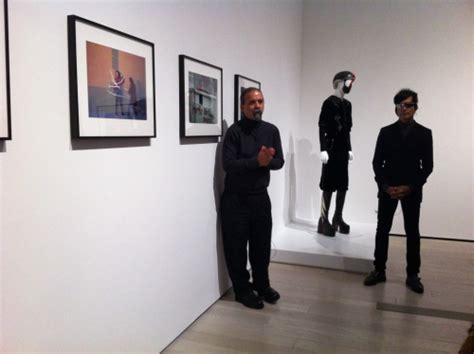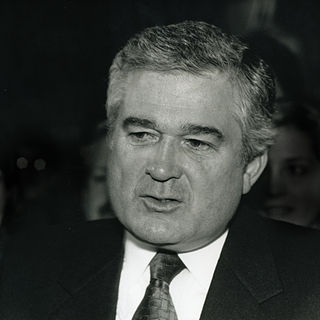A Quote by Kenneth Chenault
For me, one of the lessons from 9/11 is that you have to give the organization context for how you're acting, and you've got to communicate constantly, in this case particularly with all the changes that were occurring in the financial marketplace and in the economy.
Related Quotes
By any measure, CapitalSource outperformed both our direct competitors and the financial services industry in general, particularly in the context of the near collapse of the financial services industry where 19 of the 20 largest financial institutions in the country either failed or were bailed out by the government.
In a world of businessmen and financial intermediaries who aggressively seek profit, innovators will always outpace regulators; the authorities cannot prevent changes in the structure of portfolios from occurring. What they can do is keep the asset-equity ratio of banks within bounds by setting equity-absorption ratios for various types of assets. If the authorities constrain banks and are aware of the activities of fringe banks and other financial institutions, they are in a better position to attenuate the disruptive expansionary tendencies of our economy.
The decision-makers should communicate the customer pictures and the logic of the strategies and actions. That communication allows employees throughout the organization to implement the strategies and actions, tweaking them appropriately in response to variations in the marketplace. It also allows employees to recognize information in the marketplace that contradicts the customer pictures, either because the pictures were not entirely correct or because customers have changed.
Singing was my first love and I never even considered it after I started acting, but now I'm bringing it back into my life. I trained from the ages of 11 to 17. When I moved to New York and got into serious acting, I just kind of abandoned the whole singing thing. But when I grew up in Pennsylvania I went to voice lessons once a week.
Where my earlier works, what sets them apart is that I didn't need approval and I didn't need permission from anyone because I wasn't being paid. So, to me, I was allowed the freedom, the total freedom to just communicate how I wanted to communicate and my whole level of perspective was to communicate to the barrios, communicate to the gangs and communicate to the people that frequent the thoroughfares that were populated by these gangs and by this life style.
We spent as much money as we could and got as little for it as people could make up their minds to give us. We were always more or less miserable, and most of our acquaintance were in the same condition. There was a gay fiction among us that we were constantly enjoying ourselves, and a skeleton truth that we never did. To the best of my belief, our case was in the last aspect a rather common one.
Change efforts happen when a firm is out of alignment with achieving its vision. If the organization has broad buy-in on a clear vision, the need for change becomes much clearer. It also helps to over-communicate what you're doing and why you're doing it. Lastly, the leadership needs to spend as much time on "how" changes are being made and "what" changes are being made. Human beings are involved and there are winners and losers.



































